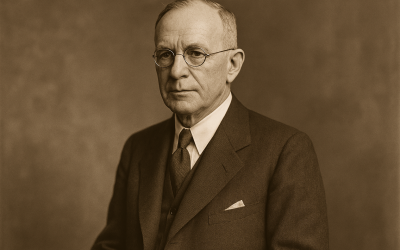The Workedge Blog
Mark's RemarksClock Management
Time management has fascinated me for years. From experimenting with Leonardo da Vinci’s polyphasic sleep schedule to studying Douglas Southall Freeman’s disciplined routine, I’ve learned that productivity often begins in the early hours. Freeman’s life—balancing journalism, historical writing, and civic duties—offers timeless lessons on focus and efficiency. His mastery of the clock reminds us that success is rarely accidental; it’s built on intentional habits.
The Supreme Gift
That was it. The would-be success had given up. He resigned himself to the reality of his life. He would never achieve the success that he had wanted. However, he discovered a more profound joy in telling stories that delighted children. Shortly thereafter, he wrote another children’s book, which he titled The Wonderful Wizard of Oz. Where would the world be without the Wizard of Oz? That book has blessed our planet for over a century, enchanting millions of children and adults through books, movies, plays, and musicals. In his moments of service to children, Lyman Frank Baum was laying the groundwork for blessings that would go unseen by him
Cerebral Palsy–Inspiring Power
“Robert Reid’s journey began with a rough birth and a later diagnosis of cerebral palsy. Many doubted he could ever succeed, but he made a life-changing decision to prove his worth to the world. Despite facing prejudice and countless physical challenges, Robert didn’t let his limitations define him. Instead, he rolled into unfamiliar places, built unexpected friendships, and shared his message with a joy and determination that changed lives. His story is living proof that what you offer the world—a spirit of service and courage—matters more than any limitation you face.”
Hidden Solutions to Your Problems
I lost my driver’s license. I searched everywhere — my billfold, car, office, home. Still, no license.
Instead of panicking, I used a technique inspired by Earl Nightingale: I asked my subconscious to solve the problem while I slept.
The next morning, I woke up with a clear thought: “It’s in the pickup.” And it was.
Our minds work constantly, even while we sleep. If you’re stuck, try this:
Everybody is Somebody’s Somebody
A rude diner thought he was just mistreating a teenage waitress—but he was actually damaging his reputation with four future clients. This real-life story from Jeffrey Fox’s Rainmaker reminds us that everybody is somebody’s somebody, and kindness is always the smarter choice.
Are You Projecting Defeat or Victory?
“Football season is more than just touchdowns and tackles—it’s a showcase of leadership, resilience, and the silent power of body language. From Roger Staubach’s unwavering determination to Tony Fritsch’s unexpected confidence, these stories remind us that projecting victory can inspire teams, shift momentum, and even change outcomes. What message are you sending—defeat or determination?”





